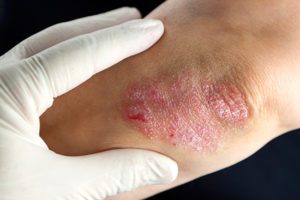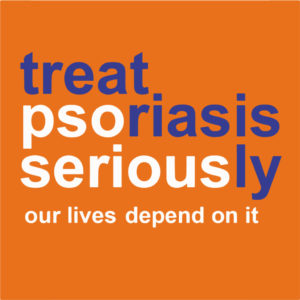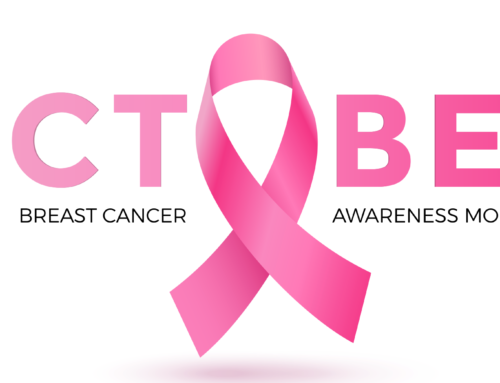It’s almost October 29th and our physicians and staff are PSO excited to celebrate
World Psoriasis Day!
World Psoriasis Day is a campaign held annually on October 29th aiming to bring awareness to this common skin condition. Psoriasis affects millions of people worldwide not just physically, but socially, emotionally, and financially. The goal of World Psoriasis Day is to bring awareness worldwide, increase an understanding of the diagnosis, improve access to treatments for those affected, and build unity among those in the community struggling with psoriasis. To get involved, visit https://www.psoriasis.org/ways-to-help/ for more information!

What is psoriasis?
Psoriasis is a life-long autoimmune skin disorder affecting men, women, and children of any ethnicity and age. This particular skin condition is believed to have a strong hereditary predisposition with tendencies to wax and wane. Psoriasis typically presents itself as thick, erythematous, scaly plaques most commonly found on the elbows, knees, trunk, and scalp. A form of arthritis, known as psoriatic arthritis, can develop in patients with psoriasis. These individuals may experience swelling, stiffness, and joint pains primarily affecting the hands, knees, and spine; however, these symptoms can affect any part of the body. To gain a better understanding of a psoriasis diagnosis, it is important to seek help from a board-certified dermatologist. Utilizing the appropriate tools and treatment methods provided by your physician allows for better management of your psoriasis symptoms and your overall health.
Do I have psoriasis?
Common signs and symptoms can vary from person to person. Some of these symptoms include:
- Red patches of skin covered with thick, silvery scale
- Dry, cracked skin that can bleed
- Itching, burning, or soreness
- Pitted, thickened, or ridged nails
- Swollen or stiff joints

Triggers
Finding your triggers and learning how to manage them will greatly reduce your chance of experiencing a psoriasis flare. This might involve a little detective work. Check out these common triggers below:
- Stress
- Illness/infection
- Weather
- Alcohol/Tobacco use
- Changes in weather
- Certain foods
- Injuries to skin such as scratches, sunburns, bug bites
Treating your psoriasis
Treatment options can vary and are often times trial and error. Available treatments include:
- Topical creams and ointments
- Phototherapy
- Systemics including oral medications and biologics
- Complimentary and integrative medicine such as nutritional and dietary changes, living an active and mindful lifestyle, along with hands-on integrative approaches through physical therapy and acupuncture.

Discussing your signs and symptoms with a medical provider is a great place to start! Knoxville Institute of Dermatology is PSO happy to help with all of your psoriasis needs. Schedule an appointment with one of our board-certified physicians today!
Additional educational resources:









